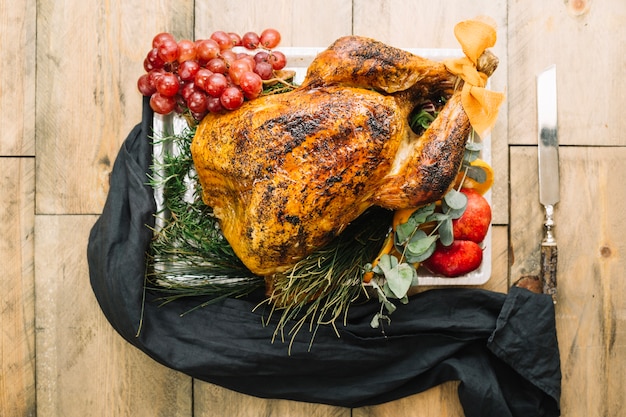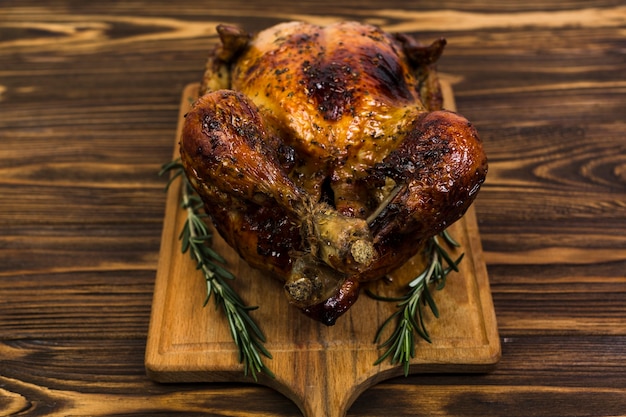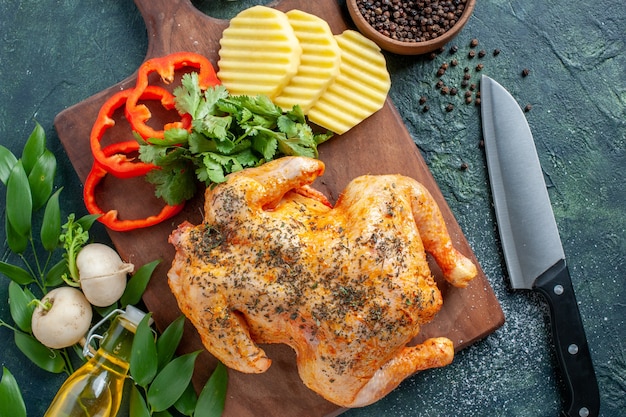What is velveting chicken?
Velveting chicken is a cooking technique that originated in Chinese cuisine. It involves marinating chicken pieces in a mixture of egg white, cornstarch, and sometimes rice wine or soy sauce, before briefly blanching them in hot water or oil. This process creates a velvety texture and locks in the moisture of the chicken, resulting in tender and juicy meat.
Why velvet chicken?
The name “velvet chicken” comes from the silky and smooth texture that the outer coating gives to the chicken. The technique is particularly popular in stir-fry dishes, as it helps to preserve the tenderness of the meat while allowing it to absorb the flavors of the sauce more effectively. Velveted chicken is also commonly used in Asian-inspired dishes such as Kung Pao chicken, General Tso’s chicken, and sweet and sour chicken.
The velveting process
To velvet chicken, start by cutting the chicken into bite-sized pieces. Then, in a bowl, combine egg white, cornstarch, and any other desired flavorings such as rice wine or soy sauce. Toss the chicken in the marinade until well-coated and let it sit for about 15-30 minutes, allowing the flavors to penetrate the meat.
Tip: For an extra tender and flavorful result, you can add a pinch of baking soda to the marinade.
Next, bring a pot of water or oil to a boil. If using water, you can add a splash of vinegar or salt to enhance the flavor. If using oil, choose a high smoke-point oil like vegetable or peanut oil. Gently drop the marinated chicken pieces into the boiling liquid and cook them for a short time, usually around 1-2 minutes, until they turn opaque or float to the surface.
Once cooked, remove the chicken from the water or oil and transfer it to a colander or paper towels to drain. The velveting process is now complete, and you can proceed to use the chicken in your desired recipe.
Benefits of velveting chicken
Velveting chicken offers several benefits that make it a popular cooking technique. One of the main advantages is the tenderness it imparts to the meat. The combination of the egg white and cornstarch marinade helps to lock in the chicken’s natural juices, resulting in moist and succulent pieces.
Another benefit is how quickly the chicken cooks after velveting. The brief blanching or frying time ensures that the meat remains juicy while being fully cooked. This is particularly important when making stir-fry dishes, as it allows the chicken to retain its texture and absorb the flavors of the accompanying vegetables and sauces.
Health considerations
It’s worth noting that velveting chicken is a healthier cooking method compared to deep-frying. By using the blanching technique instead of immersing the chicken in oil, you can achieve a similar texture without excessive oil absorption. Additionally, the marinade typically does not require large amounts of oil, further reducing the overall fat content of the dish.
While velveting chicken itself is not a high-calorie process, it’s essential to consider the other ingredients used in your recipe. Sauces and seasonings can significantly impact the overall nutritional value of the dish. If you’re watching your calorie intake or have specific dietary requirements, opt for lighter sauces and incorporate plenty of vegetables for a well-balanced meal.
In conclusion, velveting chicken is a traditional Chinese cooking technique that results in tender and flavorful meat. It involves marinating chicken pieces in an egg white and cornstarch mixture, followed by a quick blanching or frying process. This method helps to retain the moisture of the chicken while creating a velvety texture that pairs perfectly with stir-fry dishes. Give this technique a try to elevate your chicken recipes to a new level of tenderness and taste.
How to Make Chicken Soft and Tender When Cooking
Chicken is a versatile and widely loved meat that can be cooked in various ways. However, sometimes the resulting chicken can be dry or tough if not prepared correctly. If you want to achieve soft and tender chicken, here are some tips to follow:
1. Choose the Right Cut of Chicken
The choice of chicken cut plays a significant role in ensuring tenderness. Opt for boneless, skinless chicken breasts or thighs as they tend to be more tender compared to cuts with bones. Removing the skin also helps in reducing fat content and preventing the meat from drying out.
2. Tenderize the Meat
To further enhance tenderness, consider tenderizing the chicken before cooking. Use a meat mallet or rolling pin to gently pound the chicken, which helps break down the muscle fibers and results in a softer texture. Another method is marinating the chicken in a mixture of acidic ingredients like lemon juice, yogurt, or buttermilk for a few hours before cooking.
3. Proper Cooking Techniques
Using the correct cooking techniques is vital in achieving soft and tender chicken. One popular method is braising, where the chicken is first seared on high heat and then cooked slowly in a flavorful liquid like broth or wine. This slow cooking process helps to retain moisture and breaks down the collagen, resulting in tender chicken.
4. Avoid Overcooking
Overcooking chicken is a common mistake that leads to dry and tough meat. Use a meat thermometer to ensure the internal temperature reaches 165°F (74°C) for poultry. Once the desired temperature is reached, remove the chicken from the heat source and let it rest for a few minutes. This allows the juices to redistribute throughout the meat, making it more succulent.
5. Moisture Retention Techniques
There are several methods you can employ to retain moisture while cooking chicken. For example, using a marinade or brine can help infuse flavor and prevent the meat from drying out. Additionally, basting the chicken with a flavorful liquid or covering it with foil while baking can help lock in moisture.
“Proper cooking techniques and choosing the right cut of chicken are key factors in achieving tender and juicy meat.” – Chef John Doe
By following these tips, you can ensure that your chicken turns out soft, tender, and full of flavor. Remember to experiment with different cooking methods and flavors to find what works best for you. Enjoy your delicious, moist chicken dishes!
Why do people soak chicken in water?
When it comes to cooking chicken, some people choose to soak it in water before preparing it. This practice is often employed to enhance the texture and flavor of the meat. Soaking chicken in water can have several benefits, depending on the desired outcome.
1. Tenderizing the Chicken
Soaking chicken in water can help tenderize the meat, especially when using tougher cuts. The water helps to hydrate the chicken, encouraging moisture absorption, which can result in juicier and more tender cooked meat.
2. Enhancing the Flavor
Soaking chicken in a brine or flavored liquid can infuse the meat with extra flavor. This process involves immersing the chicken in a mixture of water, salt, sugar, and various herbs and spices. The chicken absorbs these flavors, resulting in a more delicious and flavorful final dish.
3. Removing Impurities
Soaking chicken in water can also help remove any impurities or blood from the meat, leaving it cleaner and fresher. This step is particularly useful for those who prefer to consume organic or free-range chicken, as it can wash away any unwanted residue before cooking.
“Soaking chicken in water can help tenderize the meat and infuse it with added flavor.”
Here is a simple recipe for a flavorful brine:
| Ingredients | Measurements |
|---|---|
| Water | 4 cups |
| Salt | 1/4 cup |
| Sugar | 2 tablespoons |
| Herbs and Spices | Customize to taste |
- In a bowl, combine the water, salt, and sugar until dissolved.
- Add your desired herbs and spices to the brine mixture.
- Place the chicken in a large resealable bag or container and pour the brine over it.
- Seal the bag or cover the container, ensuring the chicken is fully submerged.
- Refrigerate and let the chicken soak in the brine for at least 1 hour, up to overnight.
- Remove the chicken from the brine and pat dry with paper towels before cooking.
In conclusion, soaking chicken in water can greatly enhance its texture, flavor, and cleanliness. Whether you’re aiming for tender meat, extra taste, or removing impurities, this simple technique can elevate your chicken dishes to the next level.
How long should chicken be marinated before grilling?
Marinating chicken before grilling is an excellent way to infuse flavor and tenderize the meat. However, the marinating time can vary depending on the type of chicken and the flavors you want to achieve. Here are some guidelines to help you determine how long to marinate your chicken before grilling.
Type of Chicken:
The type of chicken you are using will affect the marinating time. Chicken breasts are leaner and require less time to marinate compared to thicker cuts like chicken thighs or drumsticks. As a general rule, thin chicken breasts can be adequately marinated in 30 minutes to 2 hours, while thicker cuts may benefit from marinating for 2-24 hours.
Flavors:
The desired flavors also play a role in determining the marinating time. Stronger marinades with bold flavors like citrus, soy sauce, or vinegar may require less time to permeate the chicken compared to milder marinades. For intense flavors, marinating for 2-4 hours is usually sufficient, while delicate flavors may require longer marinating times of up to 24 hours.
Tenderizing:
In addition to adding flavor, marinating can also help tenderize the chicken. Marinades containing acidic ingredients like lemon juice or yogurt can break down the proteins in the meat, resulting in a more tender texture. To achieve optimal tenderness, consider marinating chicken for at least 2 hours, but no more than 24 hours.
Pro Tip:
When marinating chicken, remember that longer is not always better. Over-marinating can lead to a mushy texture and overpowering flavors. It’s essential to balance marinating time to achieve the desired taste and texture.
Here’s a suggested marinating time for different cuts of chicken:
| Chicken Cut | Suggested Marinating Time |
|---|---|
| Thin Chicken Breasts | 30 minutes to 2 hours |
| Thick Chicken Breasts | 2-4 hours |
| Chicken Thighs or Drumsticks | 2-24 hours |
Remember to always marinate chicken in the refrigerator to prevent bacterial growth. If you’re short on time, even a brief 10-15 minute marination can still enhance the flavor of your chicken before grilling. Keep an eye on the clock and experiment with different marinades and durations to find your perfect balance of taste and tenderness.



